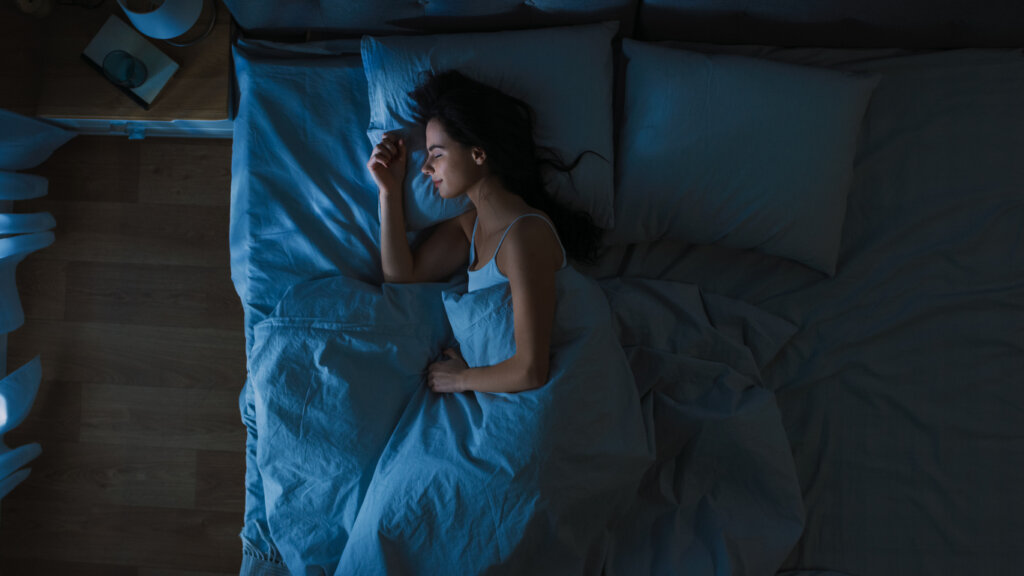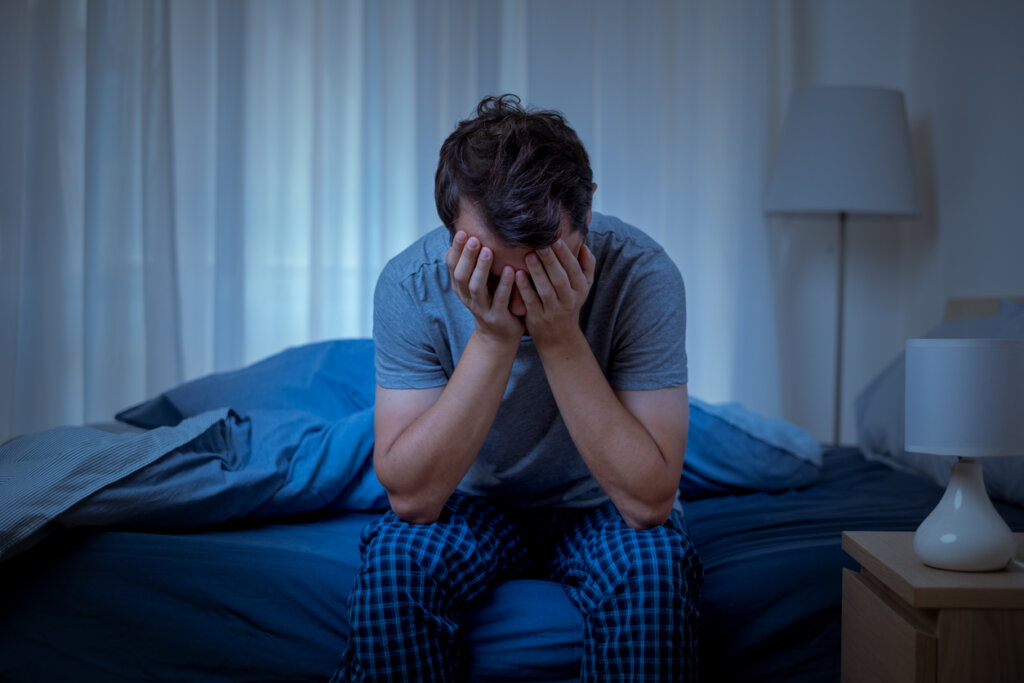Five Tips for a Good Night's Sleep

Rest is a vital part of human life and directly influences our physical and emotional well-being. Indeed, having a good night’s sleep not only helps you recharge your energy and regulate your mood but also reduces your feelings of stress and anxiety. In this article, we’re going to give you some useful tips for getting a good night’s sleep.
Eating a balanced diet, getting enough physical activity, and sleep are some of the basic foundations that your body needs to perform optimally. In fact, lack of sleep or poor quality sleep can have a negative impact on your mental health, increasing the risk of developing problems such as depression, anxiety, tiredness, and irritability.
Tips for a good night’s sleep
A suitable environment for sleeping makes a huge difference when it’s time for you to go to bed. Indeed, making sure you get enough sleep each night is essential. This isn’t only to help your body recover and recharge itself to energetically face all the challenges of the coming day but also to clear your mind and wake up feeling positive.
Here are five tips for a good night’s sleep:
1. Create a quiet and dark space in your bedroom
There’s nothing like sleeping in a clean place, with no noise and little lighting to help you relax. As a matter of fact, research claims that exposure to artificial light causes an interruption in the circadian system in the body. Over time, this deteriorates health in general, by suppressing the secretion of melatonin (the sleep hormone) that leads to the deprivation of rest.
Therefore, you should try to reduce noise and light, both indoors and outdoors, and get the recommended eight hours of sleep every night. To achieve this, you can make use of blackout curtains, sleep masks, white noise, or earplugs to help block out distractions.
2. Establish a routine for sleeping and waking

Your body instinctively adapts to your own habits. For this reason, it’s important to define a routine with specific times for going to sleep at night and waking up in the morning. This helps regulate your internal clock and makes it easier for you to fall asleep when it’s time for bed.
You should also try to invest in a good pillow and a mattress that suits your needs and preferences at bedtime. Keep in mind that mattresses that are too hard or soft can affect the quality of sleep and cause pain in the body. So, make sure you invest in good quality products to take care of your physical and mental health.
3. Maintain a cool and pleasant temperature
The optimal bedroom temperature can vary according to individual preferences. However, as a rule, it’s between 18-20°C. It’s worth remembering that an environment that’s too cold or too hot will make you unable to rest and you won’t be able to stay asleep throughout the night.
Also, when you sleep, your body releases heat and sweat. This can affect the quality of your sleep if the ambient temperature isn’t appropriate. If necessary, you can opt for fans to ensure a constant airflow or use air conditioning when winter and rain make the temperatures drop.
4. Avoid caffeine and alcohol before bed

Multiple investigations have demonstrated that substances such as alcohol can keep the brain active for hours and cause nighttime awakenings that prevent a good night’s sleep. This can eventually lead to profound insomnia, excessive daytime sleepiness, and disrupted sleep architecture. Therefore, it’s recommended you avoid drinking coffee, tea, soft drinks, cocktails, or alcohol in any form if you want a good night’s sleep. If you’re still finding it really difficult for you to fall asleep, you could consult with your family doctor about the possibility of taking a multivitamin supplement rich in melatonin or magnesium.
5. Limit your exposure to screens
Exposure to blue light from the screens of electronic devices, such as cell phones, tablets, and televisions, can interfere with melatonin production and make it difficult for you to sleep. For this reason, you should limit your use of these screens for at least an hour before bedtime. Moreover, if possible, try not to have a tv in the bedroom as they can be distracting.
Instead of using electronic devices, you could read a book, listen to soft music, or do other relaxing activities that help you disconnect from your daily chores and prepare yourself for sleep. By limiting your exposure to screens, you’ll improve the quality of your sleep and increase your overall mental health and well-being.
Follow these tips for a good night’s sleep
Finally, sleeping well is essential if you want to enjoy a healthier and happier life. As we’ve mentioned, in order to experience high-quality and restful sleep, you must create a suitable environment for rest. This includes a comfortable bed, a cool and relaxing environment, and adequate lighting. Also, in addition to establishing a regular routine, limit your exposure to screens and avoid caffeine and alcohol consumption a few hours before bedtime.
All cited sources were thoroughly reviewed by our team to ensure their quality, reliability, currency, and validity. The bibliography of this article was considered reliable and of academic or scientific accuracy.
- Hosker DK, Elkins RM, Potter MP. (2019). Promoting Mental Health and Wellness in Youth Through Physical Activity, Nutrition, and Sleep. Child Adolesc Psychiatr Clin N Am. 2019 Apr;28(2):171-193. doi: 10.1016/j.chc.2018.11.010. Epub 2019 Feb 6. PMID: 30832951.
- Scott AJ, Webb TL, Martyn-St James M, Rowse G, Weich S. (2021). mproving sleep quality leads to better mental health: A meta-analysis of randomised controlled trials. Sleep Med Rev. 2021 Dec;60:101556. doi: 10.1016/j.smrv.2021.101556. Epub 2021 Sep 23. PMID: 34607184; PMCID: PMC8651630.
- Thakkar MM, Sharma R, Sahota P. (2014). Alcohol disrupts sleep homeostasis. Alcohol. 2015 Jun;49(4):299-310. doi: 10.1016/j.alcohol.2014.07.019. Epub 2014 Nov 11. PMID: 25499829; PMCID: PMC4427543.
- Touitou Y, Reinberg A, Touitou D. (2017). Association between light at night, melatonin secretion, sleep deprivation, and the internal clock: Health impacts and mechanisms of circadian disruption. Life Sci. 2017 Mar 15;173:94-106. doi: 10.1016/j.lfs.2017.02.008. Epub 2017 Feb 16. PMID: 28214594.
This text is provided for informational purposes only and does not replace consultation with a professional. If in doubt, consult your specialist.








